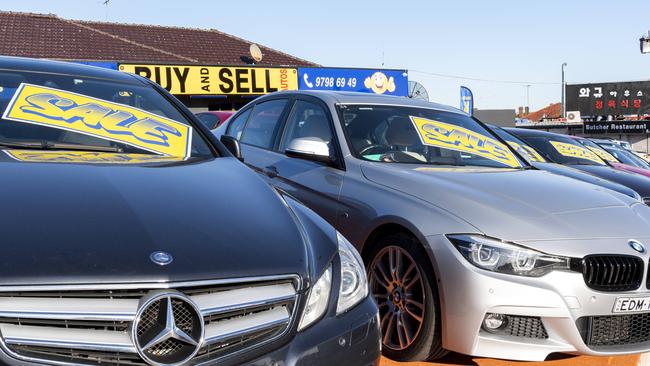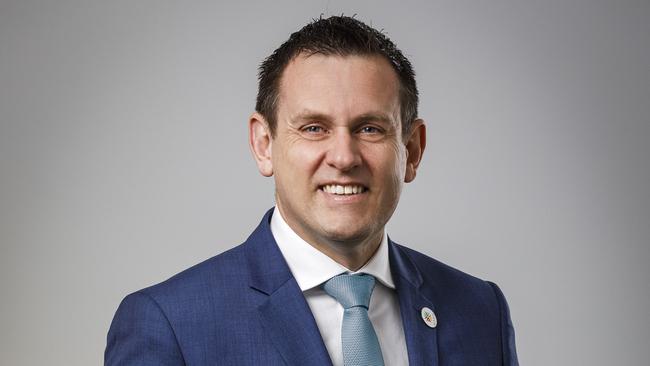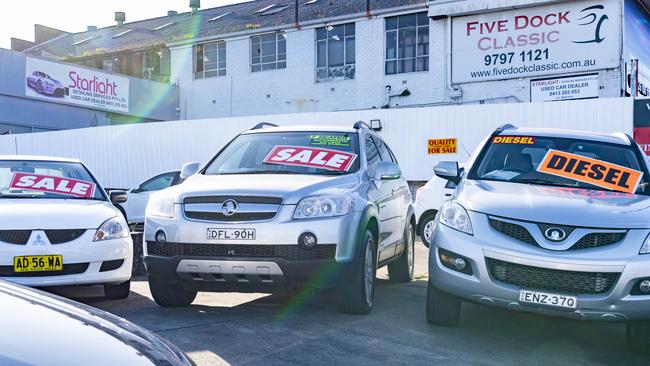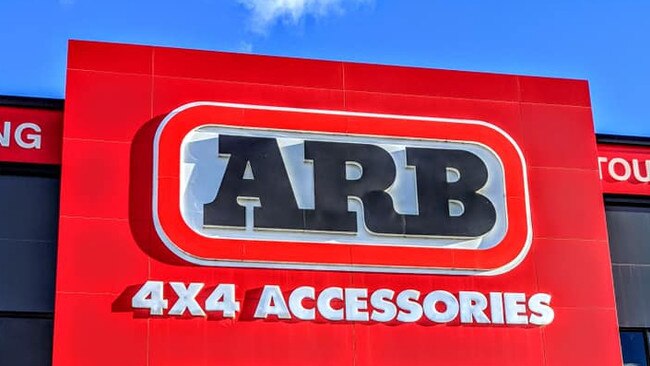Challenges for auto industry as delivery catches up to demand
There will be challenges for the auto industry in 2023 from a slowing economy and pressures on household budgets.

There was a time, before the pandemic, when Mark Weaver could hand over the keys to a new car within weeks, if not days, after the sale was first made.
“We have had 100 years of ‘you want a vehicle, we find a vehicle and we make that happen within a few weeks’.” Mr Weaver, the chief executive of one of the country’s largest car retailers, Peter Warren Automotive, told The Australian.
“Now you find a vehicle, we place an order on a vehicle and we are waiting for a few months.”
Dislocated supply chains, a shortage of semiconductors used in cars and even delays at the ports – where every vehicle in the country lands after the closure of local manufacturing – have turned the act of buying a new car into a marathon rather than a sprint.
For some specialised high-end cars the wait can be even longer – as much as 18 months – forcing Mr Weaver’s staff to adopt novel techniques like selling off screens rather than of physically showing cars in a showroom. This is proving troublesome for car retailers and consumers, but there are some benefits too for both parties.
“We don’t have high inventory levels and while there is an impact on consumers as the discounts aren’t available as they were maybe four years ago, generally they’re probably getting a better experience,” Mr Warren said.

“You would have walked into a car yard four years ago and come in thinking I want a black, model ABC car and you’d probably have been convinced to take a grey one because it was discounted – because that’s the one we’ve got and you might have walked away with a bit of buyer’s remorse,” he said.
“Now you‘re getting the vehicle you want. You’ve just got to wait a couple of extra weeks to get it.”
Last year, 1.08 million cars were delivered at a time when demand exceeded supply. That figure doesn’t capture the cars ordered – only those delivered to the buyer.
These issues have led to soaring used-car prices as consumers sought out whatever vehicle they could find. Prices are only now starting to wane. Moody’s Analytics figures show a 12 per cent fall after peaking in May. They are tipped to fall another 10 per cent in 2023.
“The decline is driven by increased new-vehicle supply as the semiconductor shortage eases. Limited inventories for new vehicles sent consumers to the used-vehicle market, driving up prices,” Moody’s analysts wrote.

The shortage of new cars and a price spike for used vehicles affect not only car retailers, but related industries including accessories and auto parts producers.
Among the broader ASX-listed sector are two major retailers, Peter Warren and Eagers Automotive, along with car parts sellers Bapcor – operator of Midas and Autobarn – ARB, and Super Retail Group’s Supercheap Auto chain.
The automotive, leisure and sports categories have enjoyed tailwinds from Covid-19. Consumers spent up on their cars – from repair and maintenance projects to buying up accessories like bull bars and caravan tow bars as international travel became impossible and domestic driving holidays became more popular.
Shares in car accessories company ARB rose more than three-fold between the outbreak of Covid-19 and early 2022 but have since slumped by 40 per cent. Bapcor shares more than doubled in the first two years of the pandemic but have since flatlined, while Eagers and Peter Warren remained flat for most of the past 12 months after earlier gains.

The risk, according to analysts, is that consumers reallocate spending back to other experiences as normal life returns, and the upkeep of cars becomes a lower priority than international travel, domestic holidays and mortgage bills.
“We remain cautious around rising cost of living pressures and a high interest rate environment that could potentially become a detriment to new-car demand in the near to medium term as higher interest rates could impact certain buyers’ eligibility for securing finance,” said Citi analyst Sam Teeger. He believed ARB was better positioned than other players due to its export growth potential and a stronger balance sheet, while Bapcor was its top small-cap pick as its range of products were less discretionary.
Then there is the pressure of higher mortgage repayments and falling house prices.
“I certainly think, historically, there’s some evidence of that effect,” said Mr Weaver. “Home equity levels have built up to such an extent over the last decade that in the current cycle it would seem unlikely that we are going to deplete that past zero.
“Anecdotally, we are still seeing an appetite for (customers) to continue to have a love affair with the motor car.”



